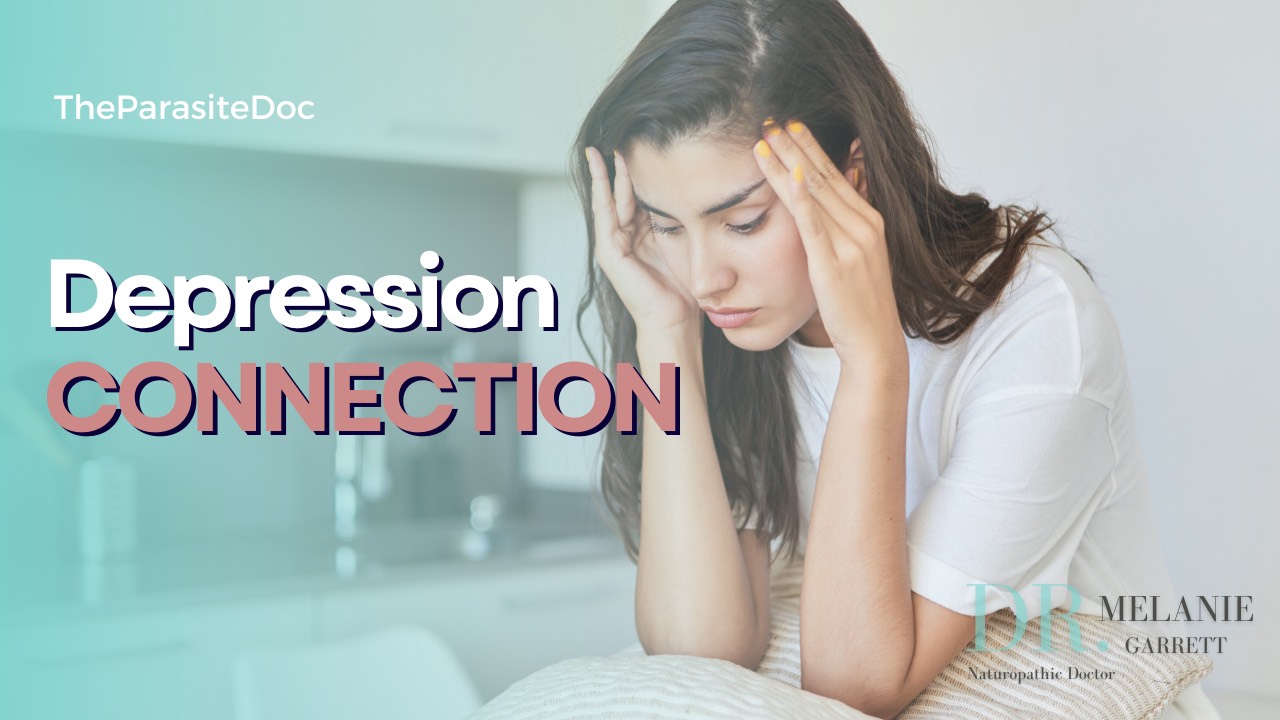Depression
What is Depression?
Depression is a complex and multifaceted mental health disorder that can have various contributing factors. While the exact causes of depression are not fully understood, research has explored potential connections between depression and factors such as genetics, brain chemistry, life events, and environmental influences. However, there is currently limited scientific evidence to support a direct link between depression and parasites or mold.

The connection between depression and parasites
Parasites are organisms that live on or inside another organism, known as the host, and obtain nutrients at the expense of the host. One parasite that has received some attention in this regard is Toxoplasma gondii (T. gondii). This parasite is known to infect humans and animals, and it primarily reproduces in cats. In studies conducted on animals, T. gondii infection has been associated with altered behavior, such as increased risk-taking behavior and reduced fear response to predators. Some researchers have hypothesized that T. gondii infection could potentially affect neurotransmitters in the brain, including dopamine, which are implicated in mood regulation.
A few studies have explored the association between T. gondii infection and mental health outcomes in humans, including depression. Some have found a weak association between T. gondii infection and an increased risk of depressive symptoms, while others have not found a significant connection. It is important to note that these studies primarily rely on self-reported symptoms and retrospective data, which can introduce limitations in terms of establishing causality or understanding the precise mechanisms involved.
Other parasitic infections, such as those caused by intestinal parasites or malaria parasites, have also been investigated for potential links to depression. Again, the evidence in this area is limited, and further research is needed to draw definitive conclusions.
The connection between depression and mold
While the exact relationship between mold exposure and depression is not fully understood, some studies have explored potential connections between the two. Mold is a type of fungus that can grow in damp and poorly ventilated environments, such as homes or buildings with water damage or excessive moisture.
Exposure to mold can lead to respiratory symptoms, allergies, and other physical health issues. Some researchers have suggested that mold exposure may also have psychological effects, including an association with depressive symptoms. However, it is important to note that the evidence in this area is limited and not conclusive.
One possible explanation for the potential link between mold and depression is the impact of chronic inflammation on the brain. Mold exposure can trigger an inflammatory response in the body, and chronic inflammation has been associated with an increased risk of depression. Inflammation may affect the brain's neurotransmitter systems, such as serotonin, which plays a crucial role in regulating mood.
Additionally, living in damp and moldy environments can lead to poor indoor air quality, which may contribute to a range of health issues, including respiratory problems and general discomfort. These physical health problems can indirectly influence mental well-being and potentially contribute to the development or exacerbation of depressive symptoms.
